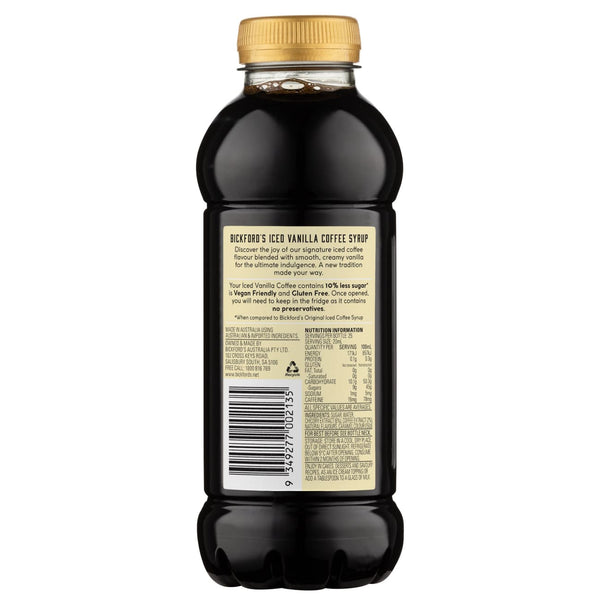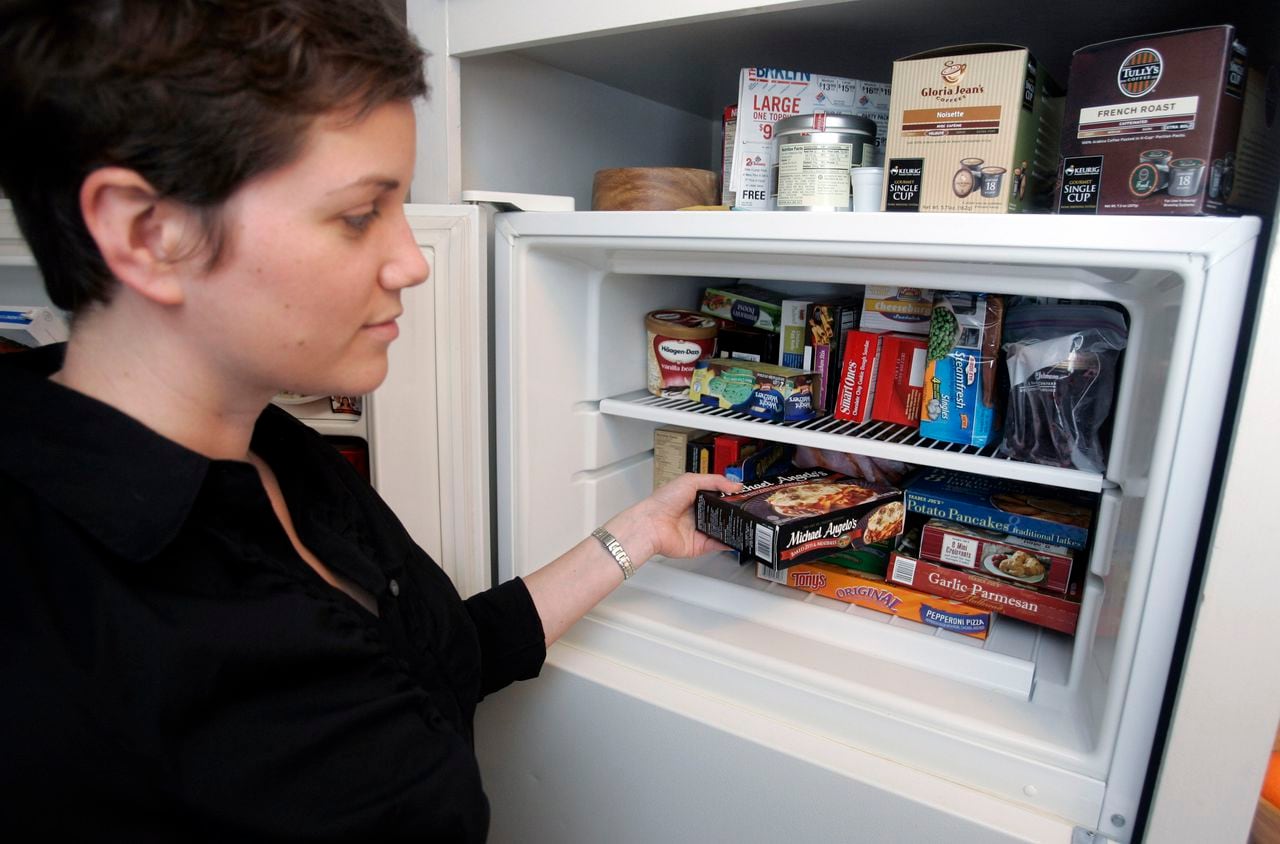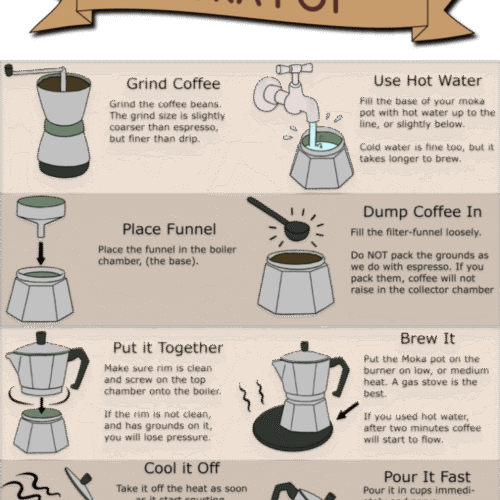Coffee can typically be stored in the fridge for 3-4 days while still maintaining its quality. However, the flavor may start to deteriorate after a couple of days.
It’s important to note that coffee should be properly stored in airtight containers to prevent absorption of any odors present in the fridge. Storing coffee in the fridge is not recommended for long periods as it may not taste or smell as fresh.
Additionally, coffee with cream, sugar, or other additives should be consumed within three days when stored in the fridge. Proper storage and timely consumption are key to enjoying the best quality coffee.
Factors Affecting The Shelf Life Of Coffee In The Fridge
When it comes to storing coffee in the fridge, there are several factors that can affect its shelf life and overall quality. By understanding these factors, you can ensure that your coffee stays fresh and flavorful for as long as possible.
Storage Container And Conditions
The type of storage container you use plays a crucial role in preserving the freshness of coffee in the fridge. It is recommended to store coffee in an airtight container to prevent exposure to air and moisture. Airtight containers help to retain the aroma and flavor of coffee, ensuring that it stays as fresh as possible.
Additionally, the conditions of your fridge can impact the shelf life of coffee. Ideally, the refrigerator should maintain a constant temperature of around 35 to 40 degrees Fahrenheit (1 to 4 degrees Celsius) to keep the coffee fresh. Fluctuations in temperature can affect the quality of the coffee, resulting in a shorter shelf life.
Airtight Containers Vs. Open Containers
Using an airtight container to store your coffee in the fridge can significantly extend its shelf life. It creates a barrier against air and moisture, preventing the coffee from absorbing any unwanted odors or flavors from other items in the fridge. This helps to maintain the freshness and flavor of the coffee for a longer period.
In contrast, storing coffee in an open container can lead to faster deterioration. Open containers expose the coffee to air, which can cause it to go stale more quickly. It also allows for the absorption of odors from other foods in the fridge, compromising the taste of the coffee.
Temperature And Humidity Levels In The Fridge
The temperature and humidity levels inside your fridge are crucial factors in determining the shelf life of coffee. As mentioned earlier, maintaining a consistent temperature of around 35 to 40 degrees Fahrenheit (1 to 4 degrees Celsius) is ideal for storing coffee.
High humidity levels can lead to moisture absorption, which can affect the flavor and quality of the coffee. To prevent this, it is recommended to store coffee away from areas of high humidity within the fridge, such as the crisper or vegetable drawers.
By ensuring the right temperature and humidity levels in your fridge, along with using an airtight container, you can maximize the shelf life of your coffee and enjoy fresh and flavorful cups every time.

Credit: sippify.com.au
How Long Can Brewed Coffee Stay Fresh In The Fridge?
If you’re wondering how long brewed coffee can stay fresh in the fridge, the answer is not as straightforward as you might think. While coffee beans have a longer shelf life, brewed coffee starts to lose its flavor and aroma as soon as it’s exposed to air. However, proper storage can help extend its freshness.
Optimal Storage Duration For Brewed Coffee
To maintain the best flavor and quality, it’s recommended to consume brewed coffee within a certain timeframe. While there are varying opinions on how long brewed coffee can stay fresh in the fridge, a general rule of thumb is to consume it within 3-5 days of brewing. Beyond this timeframe, the taste and aroma may start to deteriorate.
General Rule Of 3-5 Days
When it comes to storing brewed coffee in the fridge, the general consensus is that it can stay fresh for 3-5 days. This timeframe ensures that the flavors and aromas are still enjoyable. After this period, the coffee may become stale and lose its natural nuances.
Effects Of Flavor Deterioration Over Time
As brewed coffee sits in the fridge, it undergoes flavor deterioration. The exposure to air and moisture causes it to oxidize, resulting in a loss of flavor and aromas. Over time, you may notice a more flat and dull taste, as well as a decrease in the pleasant caffeine kick that freshly brewed coffee provides.
Tips For Maintaining Freshness
To maximize the freshness of your brewed coffee in the fridge, here are a few tips:
- Store it properly: Transfer the coffee to an airtight container or a sealed bottle before placing it in the fridge. This will help minimize exposure to air and moisture, preserving its flavors for a longer period.
- Keep it away from strong odors: Coffee is highly absorbent, and storing it near strong-smelling foods can result in unpleasant flavors. Store brewed coffee away from strong odors to prevent any unwanted taste contamination.
- Brew smaller batches: Instead of brewing a large pot of coffee that might go to waste, consider brewing smaller batches more frequently. This way, you can enjoy fresh coffee without worrying about its shelf life in the fridge.
By following these tips, you can extend the freshness of your brewed coffee in the fridge and ensure that each cup you pour remains delicious and satisfying.
Shelf Life Of Different Types Of Coffee In The Fridge
Coffee can last 3-4 days in the fridge. Cold brew coffee can last up to two weeks if brewed as a concentrate and stored properly. However, the flavor may start to deteriorate after a couple of days. It is best to consume iced coffee with additives within three days for optimal taste.
When it comes to storing coffee in the fridge, it’s important to know the shelf life of different types of coffee to ensure optimal freshness and flavor. Whether it’s ground coffee, cold brew, or iced coffee, understanding the recommended storage duration and best practices can help maintain the quality of your favorite beverage.
Ground Coffee
Ground coffee can be stored in the fridge for maximum freshness, but it is crucial to follow proper storage recommendations and considerations. Ground coffee should be stored in an airtight container to prevent moisture and odor absorption, which can affect its taste and quality. A cool and dark spot in the fridge is the ideal location for preserving ground coffee’s freshness.
Storage Recommendations And Considerations
Proper storage techniques can significantly impact the flavor and quality of coffee. To maximize freshness, it is important to store coffee away from light, moisture, and strong odors. This ensures that the coffee retains its distinct aroma and taste for a longer duration. Additionally, using a sealed container or resealable bag can help maintain the coffee’s freshness and prevent it from being exposed to air.
Impact Of Storage On Flavor And Quality
The way coffee is stored can have a significant impact on its flavor and quality. When stored properly in the fridge, coffee can preserve its freshness and flavor for up to 3-4 days. However, over time, the flavor may start deteriorating due to exposure to air and moisture. It is recommended to consume coffee within this timeframe to ensure optimal taste and aroma.
Cold Brew Coffee
Cold brew coffee, known for its smooth and rich taste, can be stored in the fridge for an extended period. The shelf life of cold brew coffee depends on whether it is brewed as a concentrate or diluted. When brewed as a concentrate and stored properly in an airtight container, cold brew coffee can last up to two weeks in the fridge. However, if water is added, its shelf life may be shorter.
Extended Storage Times For Concentrate Vs. Diluted Cold Brew
The storage time for cold brew coffee varies depending on whether it is in concentrate or diluted form. Cold brew concentrate, when stored properly, can last for up to two weeks in the fridge. On the other hand, diluted cold brew, which has been mixed with water, may not last as long and should be consumed within a few days for the best taste.
Proper Storage Techniques For Maximizing Freshness
To maximize the freshness of cold brew coffee, it is important to follow proper storage techniques. After brewing, transfer the cold brew into a clean, airtight container or bottle and seal it tightly. Keep the container in the fridge, ensuring it is away from strong odors and potential sources of contamination. This ensures that your cold brew coffee stays fresh and flavorful for an extended period.
Iced Coffee And Coffee With Milk
When it comes to iced coffee and coffee with milk, it is recommended to consume them within a specific storage duration and follow best practices. Iced coffee, when stored in a sealed container in the fridge, can last up to a week. However, it is important to note that the taste may deteriorate over time. Coffee with milk, without any additives, can be stored for a shorter duration, typically a few days, to maintain its freshness and flavor.
Recommended Storage Duration And Best Practices
For the best taste and quality, it is recommended to consume coffee within its optimal storage duration. Ground coffee and cold brew concentrate can last up to two weeks in the fridge, while diluted cold brew, iced coffee, and coffee with milk should be consumed within a week or a few days. By adhering to proper storage techniques, such as using airtight containers and keeping coffee away from light and moisture, you can maintain the freshness and flavor of your favorite beverage for longer periods.
Is It Safe To Drink Coffee That Has Been In The Fridge For An Extended Period?
When it comes to storing coffee in the fridge, many people wonder if it is safe to drink coffee that has been in the fridge for an extended period. While coffee can be kept in the fridge for a certain amount of time, it is important to understand the risks and indicators of spoilage, as well as how to properly store and monitor coffee to ensure its safety.
Risks And Indicators Of Spoilage
Keeping coffee in the fridge for too long can lead to potential risks and spoilage. One of the main concerns is the growth of mold and yeast. Coffee beans or grounds that are exposed to moisture and air can promote the growth of these microorganisms, which can be harmful if consumed. Additionally, changes in taste and appearance can also indicate spoilage. If the coffee has a sour or off-putting smell, or if there are visible signs of mold or discoloration, it is best to discard it.
Growth Of Mold And Yeast
The growth of mold and yeast in coffee can occur when it is stored improperly or for an extended period in the fridge. These microorganisms thrive in moist and warm environments, making the fridge an ideal breeding ground. It is important to store coffee in an airtight container to prevent moisture from seeping in. Additionally, regularly clean the storage container and ensure it is dry before adding fresh coffee.
Changes In Taste And Appearance
Coffee that has been in the fridge for too long can undergo changes in taste and appearance. The flavor may become dull or sour, and the aroma may weaken. Similarly, coffee that has gone bad can develop a moldy or musty smell. If the coffee looks and smells off, it is advisable to err on the side of caution and dispose of it.
Tips For Ensuring Coffee Safety
Properly storing and monitoring coffee in the fridge is essential to maintain its safety and quality. Here are some tips to help ensure coffee stays fresh:
- Store coffee in an airtight container to prevent exposure to moisture and air.
- Regularly clean the storage container and ensure it is dry before adding fresh coffee.
- Label the container with the date of brewing or storage to track its freshness.
- Never mix fresh coffee with old coffee as it can hasten spoilage.
- Keep the fridge temperature between 35°F and 40°F to slow down the degradation of the coffee’s flavor.
Properly Storing And Monitoring Coffee In The Fridge
To ensure the longevity of coffee in the fridge, it is crucial to store it properly and monitor its condition. Here are some steps to follow:
- Transfer coffee into an airtight container as soon as possible after brewing.
- Place the container in the main compartment of the fridge, away from strong-smelling foods that can affect the coffee’s flavor.
- Regularly check the coffee for any signs of spoilage, such as mold, discoloration, or off-putting smell.
- Discard any coffee that shows indications of spoilage, even if it has not reached the recommended storage time.
Signs That Indicate It’s Time To Discard The Coffee
It is important to be aware of the signs that indicate it’s time to discard the coffee. If you observe any of the following, it is best to err on the side of caution and dispose of the coffee:
- Persistent mold growth or visible signs of mold in the coffee.
- An off-putting odor, such as a sour or musty smell.
- Unusual discoloration, such as dark spots or changes in color.
- Changes in taste, such as a sour or bitter flavor.
In conclusion, coffee can be kept in the fridge for a certain amount of time, but it is crucial to store it properly, monitor its condition, and be aware of the signs that indicate spoilage. By following the tips mentioned above, you can ensure that your coffee remains safe and enjoyable to drink.
Best Practices For Coffee Storage To Maximize Shelf Life
When it comes to maximizing the shelf life of your coffee, proper storage is key. In this section, we will explore the best practices for coffee storage to ensure your favorite brew stays fresh and flavorful for as long as possible.
Optimal Storage Conditions
The first consideration for maximizing the shelf life of your coffee is to store it in optimal conditions. Temperature, humidity, and exposure to light all play a role in preserving the freshness and flavor of your coffee.
Temperature, Humidity, And Exposure To Light
When it comes to temperature, it is best to store coffee in a cool and dry place. Ideally, the temperature should be between 35 and 70 degrees Fahrenheit (2 to 21 degrees Celsius). Avoid storing coffee near sources of heat or in direct sunlight, as this can lead to flavor degradation.
Humidity is another factor to consider. Coffee is hygroscopic, meaning it can absorb moisture from the surrounding environment. Excessive humidity can cause the coffee to spoil and lose its flavor. To prevent this, store your coffee in an airtight container in a dry environment.
Exposure to light can also affect the quality of your coffee. Ultraviolet (UV) rays can break down the compounds in coffee, leading to flavor deterioration. It is best to store your coffee in a dark or opaque container to minimize exposure to light.
Choosing The Right Storage Container
The choice of storage container can make a significant difference in preserving the freshness and flavor of your coffee. Opt for an airtight container that can seal out air, moisture, and light. Glass, ceramic, or stainless steel containers are excellent options as they do not react with the coffee and can maintain a consistent temperature.
Alternatives To Fridge Storage
While some people may instinctively reach for the fridge to store their coffee, it is not always the best option. The fridge can introduce moisture and odors that can impact the taste of your coffee. Instead, store your coffee in a cool, dry pantry or cupboard.
Considerations For Storing Coffee Outside Of The Fridge
If you choose to store your coffee outside of the fridge, it is essential to take additional precautions to maintain its freshness. Keep the coffee away from strong-smelling substances as it can absorb odors. Additionally, avoid storing coffee near heat sources or in direct sunlight to prevent flavor degradation.
Tips For Preserving Freshness And Flavor
Here are some tips to help you preserve the freshness and flavor of your coffee:
- Buy coffee in smaller quantities to ensure you are consuming it before it goes stale.
- Grind your coffee beans just before brewing to retain maximum freshness.
- Avoid freezing coffee as the repeated thawing and freezing process can affect the flavor.
- Store flavored or fragrant coffees separately to prevent cross-contamination.
- Consider investing in a vacuum-sealed container to remove excess air and prolong the shelf life of your coffee.
By following these best practices for coffee storage, you can ensure that your coffee stays fresh and flavorful for longer, maximizing your enjoyment of every cup.
Frequently Asked Questions For How Long Is Coffee Good For In The Fridge
Can Coffee Go Bad In The Fridge?
Coffee can go bad in the fridge if it is stored for too long. Generally, coffee will last about 3-4 days in the fridge before the flavor starts to deteriorate. Cold brew coffee can last up to 2 weeks if brewed as a concentrate and stored properly.
However, it is not recommended to store ground or whole bean coffee in the fridge as it won’t stay fresh.
How Long Is Iced Coffee Good In The Fridge?
Iced coffee is good in the fridge for up to three days. It is best to consume it within this timeframe for optimal flavor and freshness.
How Do You Know If Coffee Has Gone Bad?
Coffee can go bad if it smells or tastes off, like rancid, moldy, or mildewy. It’s best to use freshly ground coffee or consume pre-ground coffee as close to the date of purchase as possible. If it doesn’t smell or taste right, it’s time to throw it out.
Can We Store Beaten Coffee In Fridge?
Beaten coffee can be stored in the fridge for up to three to five days. However, the flavor may start deteriorating after a couple of days. Make sure to cover the coffee to prevent absorption of odors from other foods.
Avoid storing coffee in the fridge for more than a week, as it may not taste or smell as fresh.
Conclusion
Coffee can be stored in the fridge for up to a week, but the flavor and freshness may start to deteriorate after a couple of days. It is important to store coffee in airtight containers to prevent absorption of odors.
While the fridge can keep coffee cold, it is not cold enough to keep it fresh. Therefore, it is recommended to consume coffee within a few days to ensure the best taste and quality.








